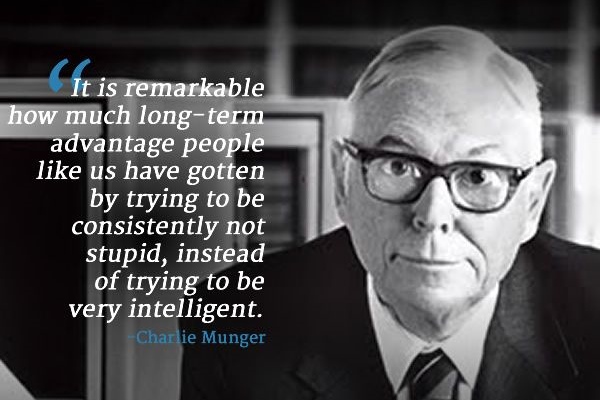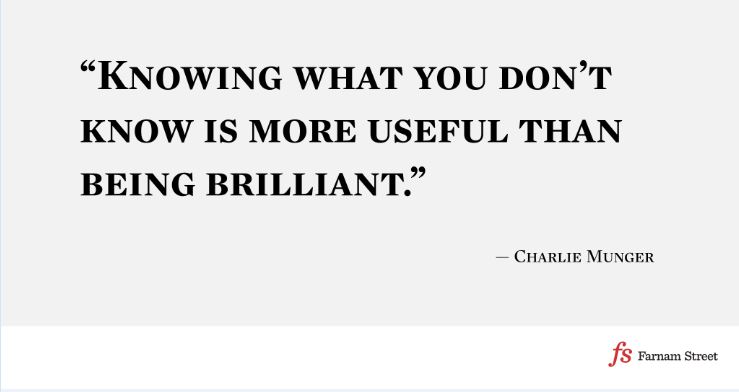How To Win Without Succeeding
Tennis Lessons For Ordinary People

How To Win Without Succeeding - Failure is The Norm
The concept of "How To Win Without Succeeding" may sound counter-intuitive but it reflects reality.
Most motivational speeches have an anecdote that features how someone overcame tremendous odds and yet came home a winner.
The personal development and self-help world is steeped in case studies and analysis of success. Numerous studies have been undertaken on successful people to understand what it was that they did to become so successful, how they did it and when they did it - and we are led to believe that we too can achieve comparable success if we replicate this.
We are told by the self-help gurus:
“You can be anything you want to be, if you put your mind to it.”
“Your thoughts have resonance and if you think enough positive thoughts for long enough, they will manifest.
But that is just not true.
This focus on success is very odd given that:
Success is the exception rather than the rule
Every scientific discovery, every new invention, every great innovation, every new idea of substance is the product of innumerable failures.
Most people do not realize all of their dreams. Most of the time, most of us fail. Hard work, skill, focus and persistence are not enough without the randomness of chance and the alignment of many factors, principally being in the right place with the right offering at the right time in the right environment.
For every successful business person there so many more who have failed - over 95% of new businesses fail.
Many people do not find the life-partner of their dreams.
Failure is the norm. Most of the time, your plans do not work out as you wanted them to.
Understanding Our Forgotten Failures
"The first reason to turn towards failure is that our efforts not to think about failure leave us with a severely distorted understanding of what it takes to be successful. " (Oliver Burkeman)
Here are some pointers to help you understand:
Where does all this leave us? The notion that you might fail can really slow you down. But it’s not the failure itself that’s the problem. The problem is your relationship with failure.
A good failure is a powerful learning experience.
So accepting your limitations, and embracing failure as an opportunity to learn, improve and grow, what next?
Well this is where you can gain valuable insights from the world of tennis about how to win without succeeding.
"Amateurs win the game when their opponent loses points, experts win the game by gaining points. " [Shane Parrish] Simon Ramo, a scientist and statistician, wrote a fascinating little book in the 1970s: Extraordinary Tennis Ordinary Players. Ramo identifies the crucial difference between the winner’s game and a loser’s game. In his essay, The Loser’s Game,
and referencing Ramo's work, Charles Ellis calls professional tennis a
“Winner’s Game.” While there is some degree of skill and luck involved,
the game is generally determined by the actions of the winner Amateur
tennis is an entirely different game. Not in how it is played or the
rules but, rather, in how it’s won. Long and powerful rallies are
generally a thing of the past. Mistakes are frequent. Balls are
constantly hit into nets or out of bounds. Double faults are nearly as
common as faults. Over many years' of observation and analysis
Ramo had concluded that there were 2 games of tennis. One game is played
by the professionals and the other is played by the rest of us. Ramo
found that 80 percent of points in high-level matches between
professional players were the result of winning shots and only 20
percent the result of unforced errors by one’s opponent. In
contrast, the dynamics of matches between amateurs were reversed. Eighty
percent of points came from unforced errors. An amateur player seldom
“beats” an opponent; rather, the player who makes the fewest mistakes,
who simply continues to keep the ball in play, usually ends up winning. From Ramo’s perspective, if you want to win at tennis, you have to adjust your strategy to your abilities. For the “ordinary” tennis player, this means understanding that amateur tennis is a “loser’s game” where success comes from avoiding losses. The
point is that most of us are amateurs but we refuse to believe it. This
is a problem because we’re often playing the game of the professionals.
What we should do in this case, when we’re the amateur, is to invert the problem and focus on how to win without succeeding: Rather than trying to win, we should avoid losing.
Two examples: [1] NETWORKING & REFERRALS Key Point:
Accept that just because someone you know and trust believes something
to be true, does not make it so [until corroborated by market data] it
just means that they genuinely believe it to be true. Specifics: Starting out First impressions Developing the relationship Early warning signsHow To Win Without Succeeding By Avoiding Losing

How To Win Without Succeeding By Avoiding Stupidity and Unnecessary Errors

[2] DECISION MAKING & EXERCISING JUDGEMENT
Key Point:
Understand and know how to avoid: [1] Cognitive Distortions - the psychology of human misjudgement; and how to apply [2] Mental Models.
Specifics:
- The first and most obvious point is to understand and be fully aware of these cognitive biases and cognitive distortions.
- Understand the power and pitfalls of Heuristics i.e. the mental short cuts that we all use all the time in everyday decisions.
- Understand the forces at play, especially the boundary between knowing what you do know and what you don't know. Understand your Circle Of Competence.
- When making important and significant decisions, invest the time to apply good Thinking Skills to the whole decision making process.
- Pay particular attention to First Principles Thinking and Second Order Thinking
- Understand and apply Mental Models
How To Win Without Succeeding With The Balanced Toolkit
Here is how it all hangs together.
I have listed above - with references and resources - some examples of how to win without succeeding in significant areas in life and business and where we can all take steps to increase our chances of winning by losing less.
This is a long game and if you engage you will find that the route to winning will take you along the road less traveled.
Feel free to contact me to discuss further if any aspect of this resonates with you.
How To Win Without Succeeding - Further Reading
The Challenges Of The Road Less Traveled
The Law of Response and Outcome
Embracing Uncertainty & Failure Is The better Option
Your Relationship With Failure
The Luck Factor - The Power Of Expectation
Secret Of Success - Identify Your Core Desire
Your Point Of Focus - Is Helping You Or Hindering You
Return from "How To Win Without Succeeding" to: Home Page
LATEST ARTICLES
The Inner Weight of Shame - Sustained By Attentional Fixation
 A Mind That Is Continuously Engaged In Self-Surveillance. Shame is one of the heaviest inner burdens a human being can carry. It does not announce itself loudly or demand attention through drama. Inst…
A Mind That Is Continuously Engaged In Self-Surveillance. Shame is one of the heaviest inner burdens a human being can carry. It does not announce itself loudly or demand attention through drama. Inst…Does Prayer Work? The Psychology of Prayer, Meditation and Outcomes
 Reality Is A Complex System Of Countless Interactions - Including Yours. So does prayer work? The problem is that the question itself is usually framed in a way that guarantees confusion. We tend to a…
Reality Is A Complex System Of Countless Interactions - Including Yours. So does prayer work? The problem is that the question itself is usually framed in a way that guarantees confusion. We tend to a…Living in Survival Mode Without Surrendering Mental Authority
Living in Survival Mode Without Surrendering Mental Authority
 Clear Thinking When You’re Just Trying to Stay Afloat. Many people today are overwhelmed because they are living in survival mode - not temporarily, but as a persistent condition of life. For many, th…
Clear Thinking When You’re Just Trying to Stay Afloat. Many people today are overwhelmed because they are living in survival mode - not temporarily, but as a persistent condition of life. For many, th…Manifestation Without Magic: A Practical Model
 Manifestation without magic is not a softer or more intellectual version of popular manifestation culture. It is a different model altogether. Popular manifestation teachings tend to frame reality as…
Manifestation without magic is not a softer or more intellectual version of popular manifestation culture. It is a different model altogether. Popular manifestation teachings tend to frame reality as…Staying Committed When You Can't See Progress - The Psychology of Grit
 Uncertainty Is Not The Absence Of Progress, Only The Absence Of Reassurance. One of the most destabilising experiences in modern life is not failure, but uncertainty and staying committed when you can…
Uncertainty Is Not The Absence Of Progress, Only The Absence Of Reassurance. One of the most destabilising experiences in modern life is not failure, but uncertainty and staying committed when you can…The Battle For Your Mind - How To Win Inner Freedom In A Digital Age Of Distraction
 From External Events to Inner Events. We often think of “events” as things that happen out there: the traffic jam, the rude comment, the delayed email reply. But what truly shapes our experience is wh…
From External Events to Inner Events. We often think of “events” as things that happen out there: the traffic jam, the rude comment, the delayed email reply. But what truly shapes our experience is wh…How to See Your Thoughts Without Becoming the Story
 A Practical Guide to Thought-Awareness. You can spend your life inside the stories of your mind without ever learning how to see your thoughts clearly and objectively. Most of the stuff we tell oursel…
A Practical Guide to Thought-Awareness. You can spend your life inside the stories of your mind without ever learning how to see your thoughts clearly and objectively. Most of the stuff we tell oursel…The Collison Decision Matrix - A Simple Framework for Better Choices
 The Collison Decision Matrix Is A Practical Everyday Thinking Tool. Most of us spend a surprising amount of time worrying about decisions. From small ones such as what to wear, what to eat, what to te…
The Collison Decision Matrix Is A Practical Everyday Thinking Tool. Most of us spend a surprising amount of time worrying about decisions. From small ones such as what to wear, what to eat, what to te…The Power Of Asking The Right Question
 The Power Of Asking The Right Question Lies In The Quest For Insight. To experience the power of asking the right question you must develop the practice of asking questions. The best way to improve th…
The Power Of Asking The Right Question Lies In The Quest For Insight. To experience the power of asking the right question you must develop the practice of asking questions. The best way to improve th…Site Pathways
 Here is a site pathway to help new readers of Zen-Tools navigate the material on this site. Each pathway is based around one of the many key themes covered on this site and contain a 150 word introduc…
Here is a site pathway to help new readers of Zen-Tools navigate the material on this site. Each pathway is based around one of the many key themes covered on this site and contain a 150 word introduc…How To Live With Contradiction - Beyond Thought Let Stillness Speak
 A major impact on so many peoples' lives is the situational contradiction of unfilled realistic expectations. So where does all this leave us? Well here we are, with mental equipment that is more lim…
A major impact on so many peoples' lives is the situational contradiction of unfilled realistic expectations. So where does all this leave us? Well here we are, with mental equipment that is more lim…